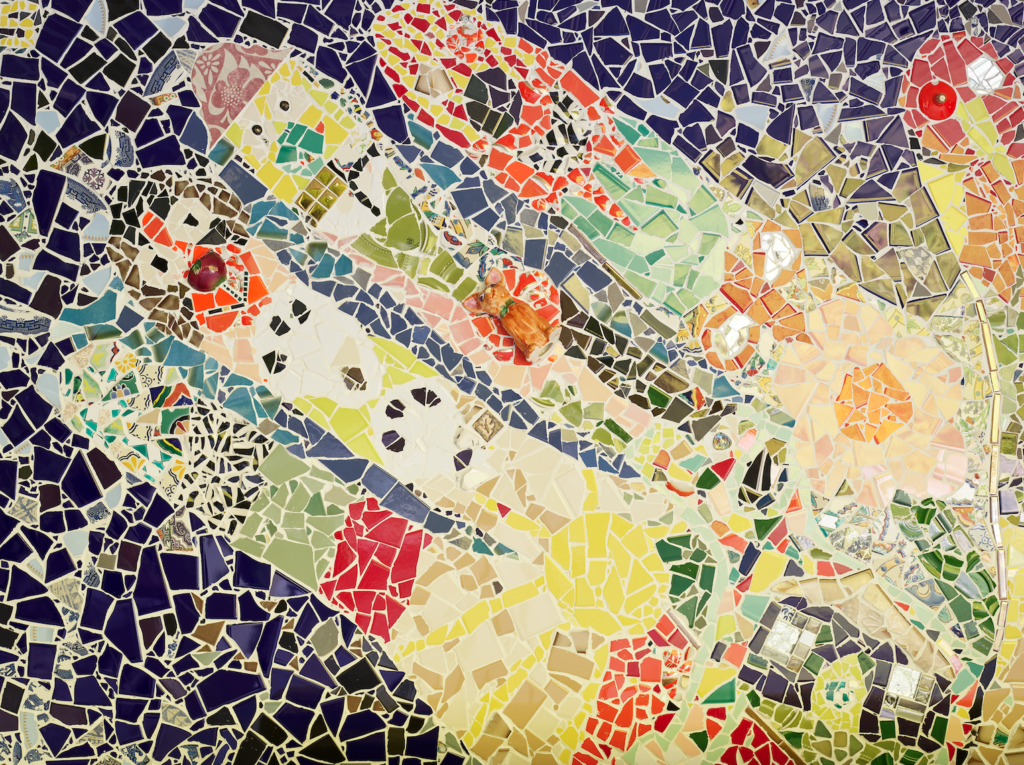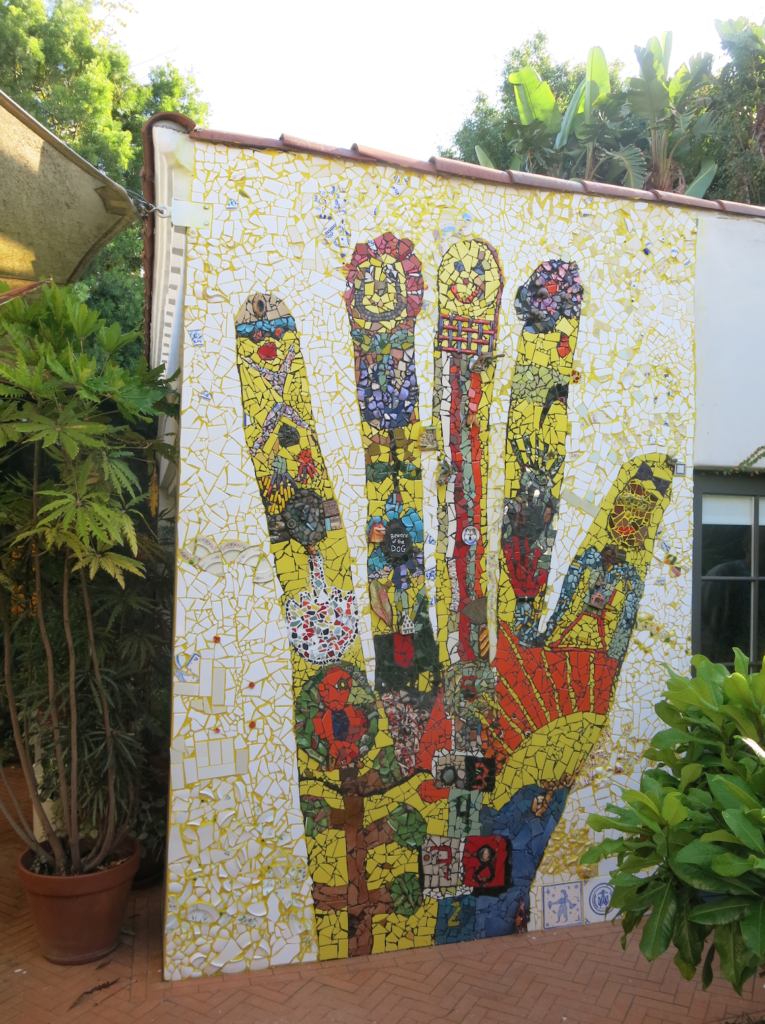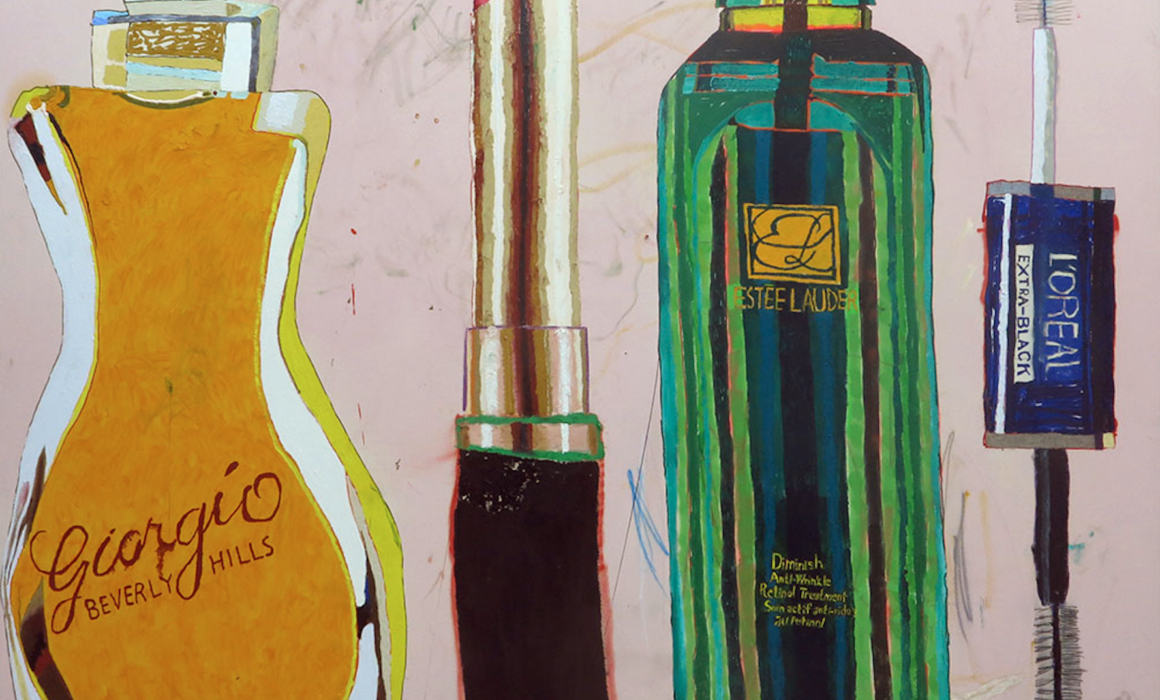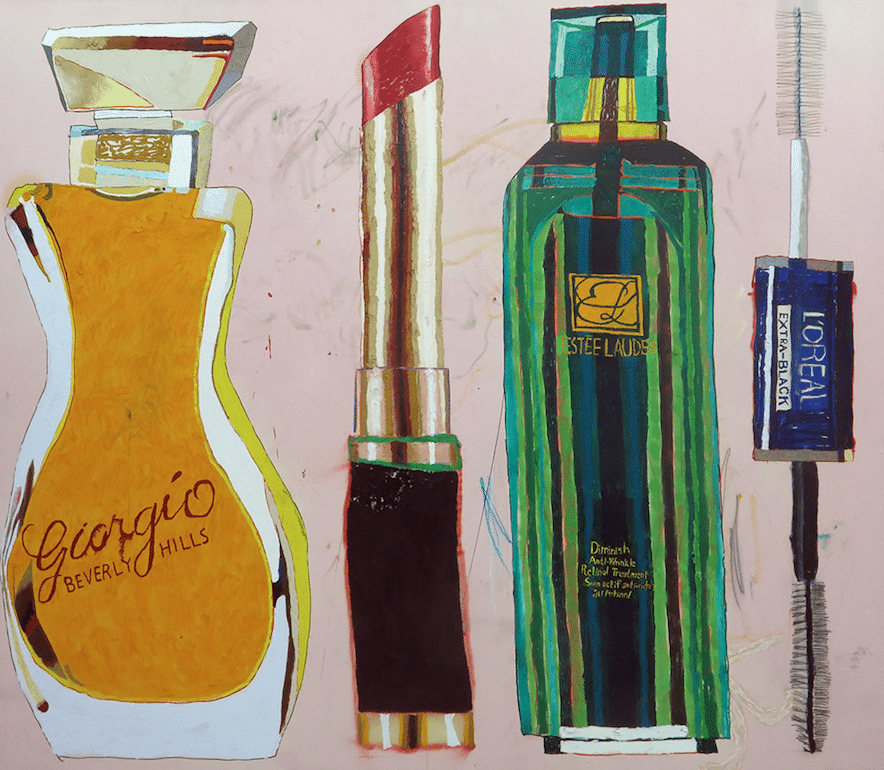Make the Worst Possible Joke about Yourself – Benjamin Murphy & Michael Swaney

Benjamin Murphy – Why are you an artist?
Michael Swaney – I have no idea. Except that it probably has to do with being raised in a creative atmosphere by my parents who both had hobbies when I was young.
BM – So both of your parents are artists?
MS – Yes. My mum was always the artist figure in my family and I learned a lot from her. But now in hindsight I see that my dad has always been an artistic figure in the family as well. He’s a retired chemical engineer, but is also a HO scale model railroad fanatic since as long as I remember, he can paint backdrops, make trees out of rope and rivers out of resin, make a house or train look dilapidated. He also pretty creative with his gardens anti-deer arrangements, which I often photographed and admired.
BM – Tell me more about these anti-deer arrangements…
MS – The anti-deer arrangements are these piles of organised crossing sticks that didn’t even work. But they look amazing. My dad gets pretty experimental with the ways of keeping animals away from the garden. He’s sprinkled his own hair around the fruit trees. Hung soap off the branches. Etc.
BM – Hahaha does he have any reason to think these things will work or is it all trial and error?
MS – It’s mostly trial and error based off of common knowledge of wilderness in Canada.
BM – Do you think you have a similar approach to art-making?
MS – Definitely. It’s about jumbling around with everything and utilising it all, as well as the scraps. Like a garden.
BM – Why are you trying to say with your works?
MS – I’m not trying to say anything specifically.
MS – I think my attitude and philosophies in life show through in the art, and I hope that when I’m no longer here it will be fairly evident what I was saying.
BM – Do you see a distinction between what is sometimes called “high art” and “low art”, or highbrow and lowbrow.
MS – Well, right now everyone wants to blur the boundaries of high and low. I didn’t necessarily agree with that. Categories are helpful in distinguishing marginal art forms from the academic ones. I am happy that outsider and folk practices are finally being placed in the same museums as artist who have studied, but to me marginal art forms are far more interesting than academic ones and so, should be categorised as such still. Art Brut is virtually impossible to come across any more and therefore it is a rare prestigious category to be part of.
BM – Do you identify with the Art Brut movement?
MS – I identify way more with ways of working in marginal movements, but would never dare placing myself in one. I’ve been thinking what I do is parallel to them. I didn’t go to art school but have been extremely influenced by popular culture in my life, as well as the notion of an audience and a market. Those things disqualify any artist from any outsider category in my opinion.
BM – Do you feel any affinity with Pop or CoBrA?
MS – Cobra for sure. And Dubuffet is a mentor figure to me.
BM – The juxtaposition of such a traditional medium, ie mosaic, with your contemporary subject matter is interesting, what drew you to this medium and what are you able to say with mosaic that you are unable to articulate with other mediums?
MS – I’ve always lived mosaic work primarily through my admiration for Hunderteasser. Then I moved to Barcelona and discovered Gaudi’s work in person. Niki de Saint Phalle too. I feel like it’s a medium that people are ready to see again. A humble artisanal medium that requires sweat and blood, and contrasts our digital obsession. Brings you back down to earth again.
BM – Aside from artists, what would you say informs your work?
MS – Humour. Nature. Love. Stress. Music. Movies. Food. My child. Conversation.
BM – What are hinderances to your practice, and how do you overcome them?
MS – Usually other people’s opinions. I’m way better off working reclusively than knowing what people think and having them see the process. Also not having a big enough studio to work on many disciplines at once.
Yet. That will soon change.
BM – Do either of these things ever force you to work in ways that provide unexpected benefits?
MS – Well, studios that are small can be helpful in not sitting back and looking at the work from a distance for ages and just committing to them being done. Then it’s a surprise seeing it installed.
BM – Yeah that’s true.
MS – As far as opinions, yes it’s beneficial not knowing what others are doing and for them knowing what you’re doing. All artists know that I guess.
BM – Where did the hand motif come from and what is its significance?
MS – My daughter got hooked On these videos, and I got even more hooked.
BM – Nursery rhymes are an interesting topic for art, I’m not sure I’ve seen that before
MS – I can’t think of anything that stands out to me immediately. I’m sure there is. I love the Mike Kelly stuffed-toy sculptures.
BM – What were you making your work about before your daughter was born?
MS – I suppose they were sort of versions of what I used to do as a kid. Side-profile views of rooms with people. Family settings with bedroom details and dinner tables. It wasn’t a conscious decision to do that though, I realised it after the fact.
BM – What annoys you most about the art world?
MS – Artists ?
I’ve been realising I don’t like to have a lot of artist friends.
BM – Haha – what is it about us that annoys you?
MS – We are so ego based. So much social pretension and elitist bullshit.
BM – How do we counter that?
MS – Hang out with non-artists.
BM – Yeah I think that’s important.
MS – Right?
That was also one of Dubuffet’s things. He liked to hang out with bakers and bricklayers etc.
BM – As did Bacon, he hung out with criminals.

MS – I recently told a young artist friend, you can never be too cocky Because this shit is so unstable.
BM – You think cockiness is necessary to survive?
MS – Also I’ve learned to be more cautious about who I share my ideas with ?
BM – Yeah it’s necessary for sure in some cases. Confidence. But not when it comes to having a new experience with another human being no matter who they are or what they do. If arrogance gets in the way you won’t have a genuine experience
MS – It’s hard to explain. Do you think it’s necessary?
BM – I definitely see what you mean, it’s essential to display confidence in yourself and your work, as if you don’t believe totally in what you’re doing then how can you expect anyone else to.
But it’s hard to not have this confidence spill over into arrogance.
MS – Exactly. But it bugs me when people are arrogant. In general. A sense of humour about oneself is fundamental in my opinion.
You have to be able to make the worst possible joke about yourself.
For more of Benjamin’s conversations:


